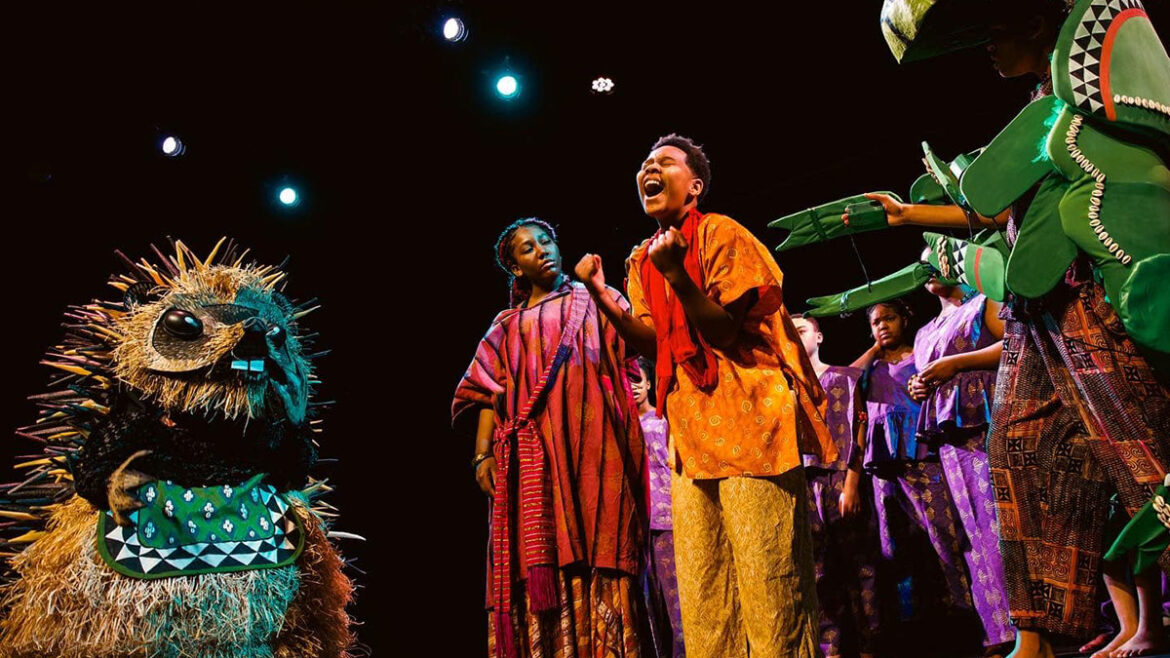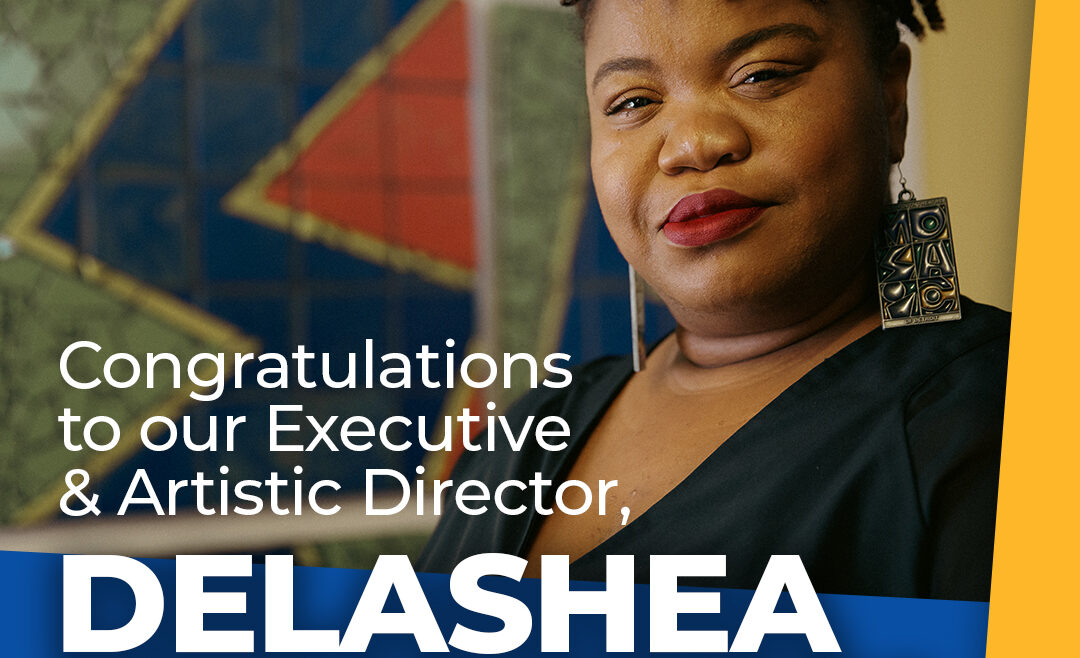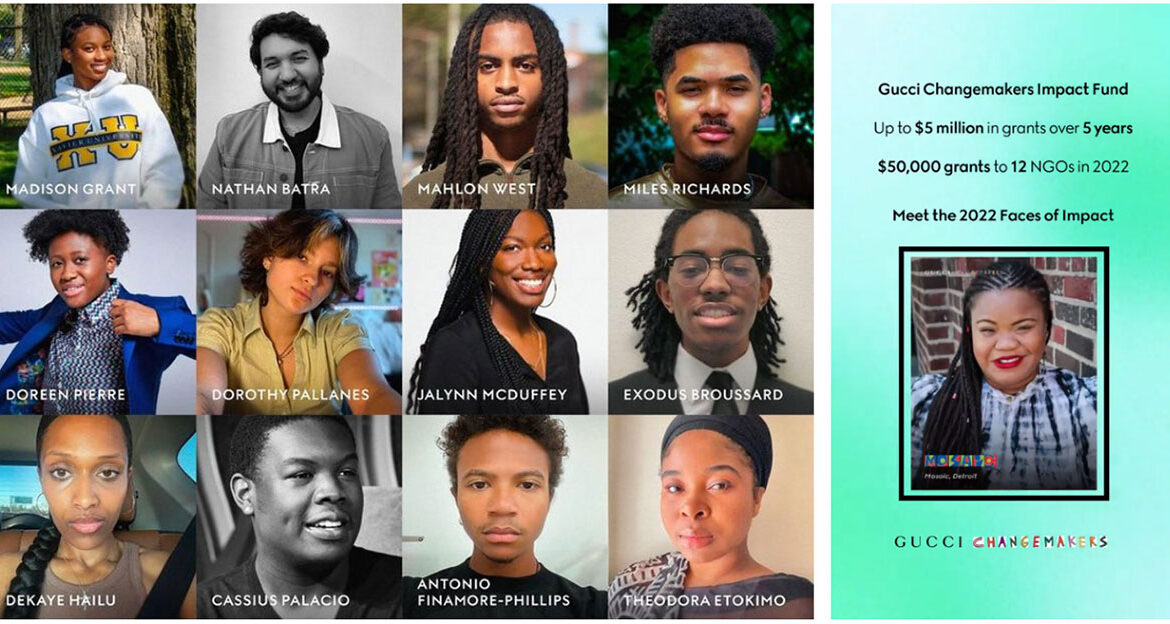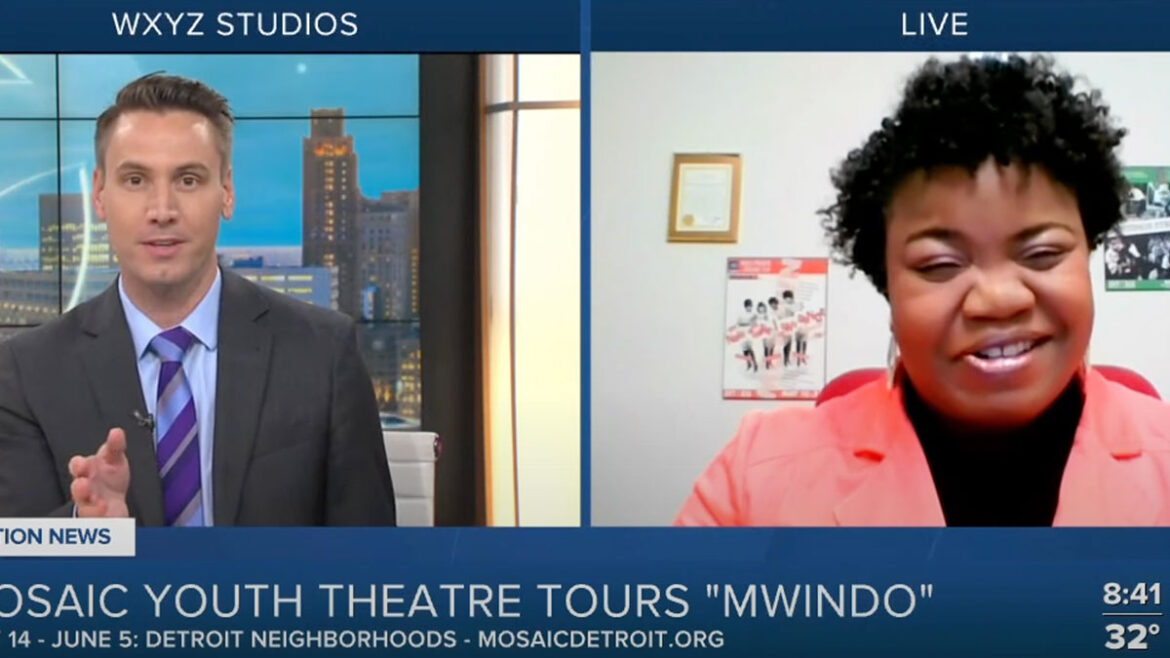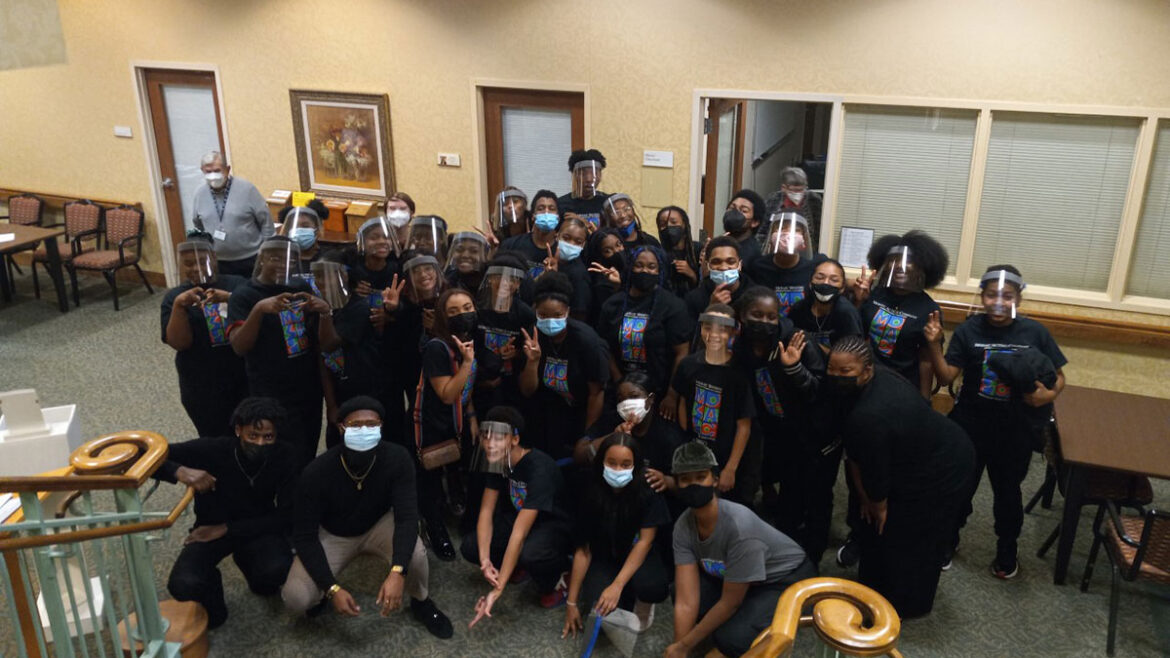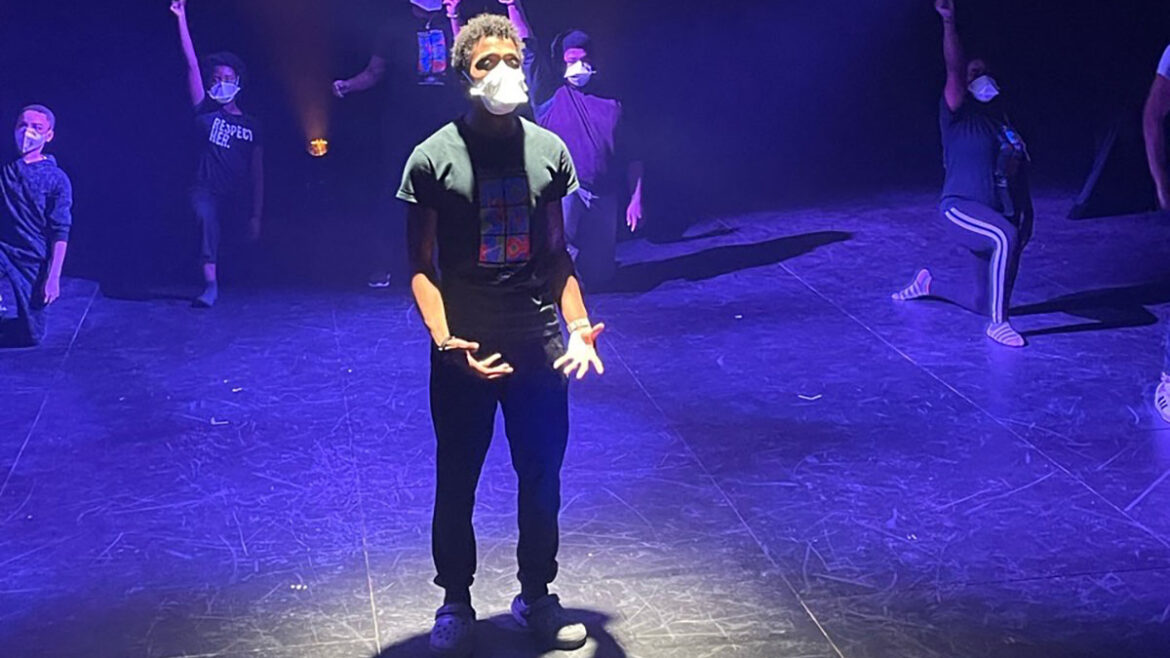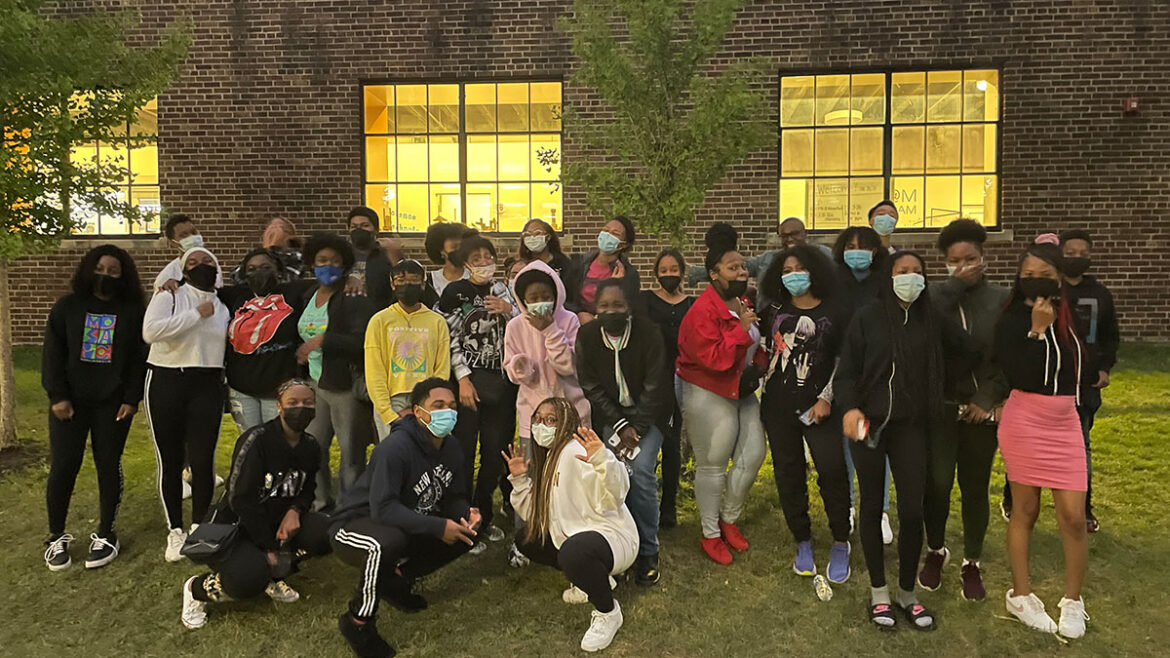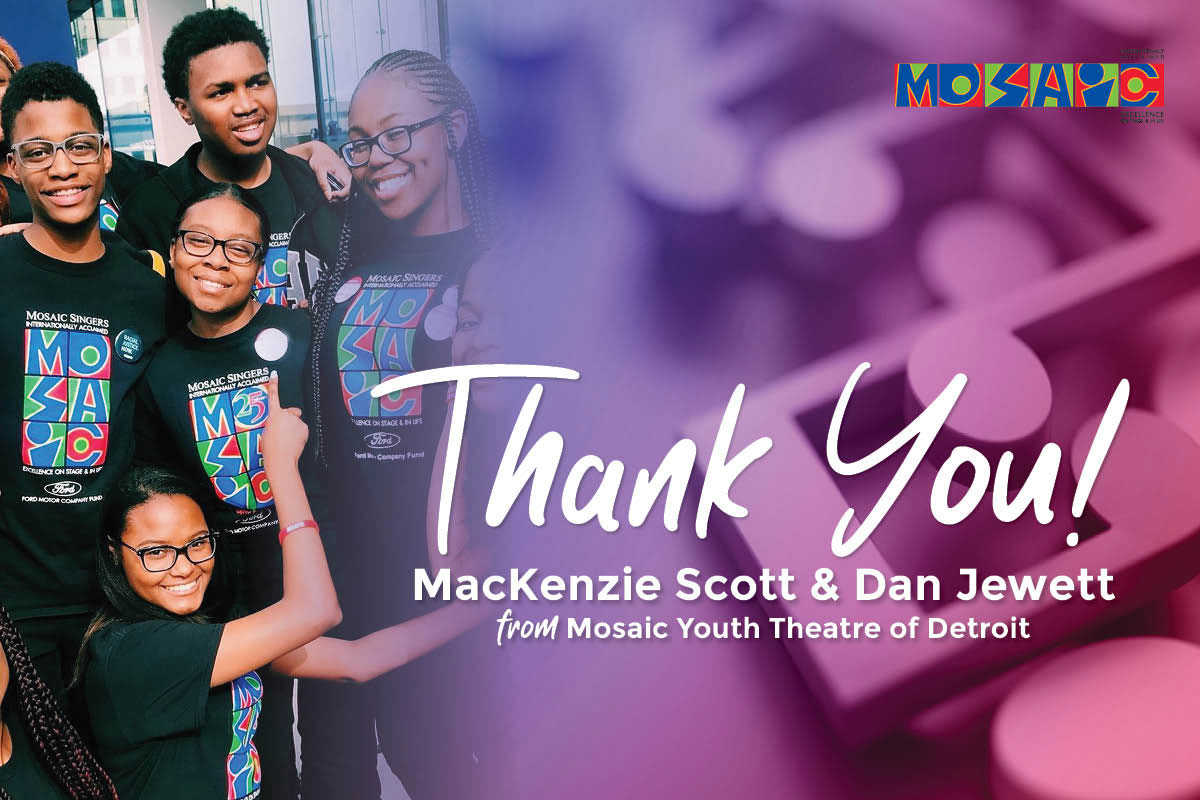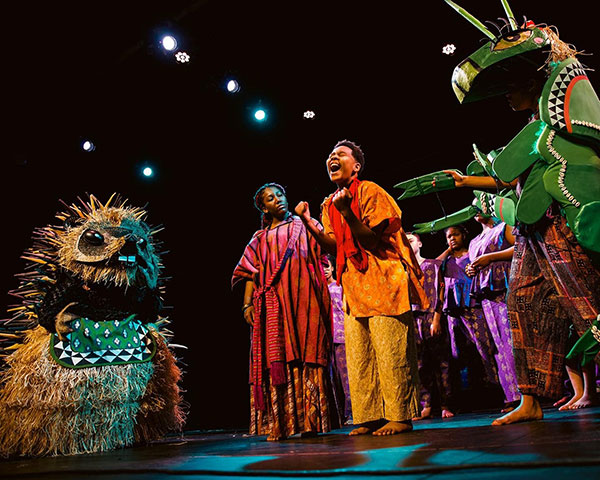 Mosaic Youth Theatre of Detroit has been awarded a grant of $25,000 from the State of Michigan Arts and Culture Council (MACC). The grant was awarded through the MACC peer review process and was one of 639 applications to compete for MACC fiscal year 2023 funding.
Mosaic Youth Theatre of Detroit has been awarded a grant of $25,000 from the State of Michigan Arts and Culture Council (MACC). The grant was awarded through the MACC peer review process and was one of 639 applications to compete for MACC fiscal year 2023 funding.
This grant helps Mosaic further its mission of empowering young people to maximize their potential through professional performing arts training. In the past year, the youth ensemble has entertained over 36,000 audience members, and every young artist at Mosaic has enrolled in a college or university after their high school graduation. This contribution from the state will allow us to continue transforming and inspiring the Detroit community with our creation of engaging theatrical and musical art.
As an organization receiving a MACC grant award, we are required to match those funds with other public and private dollars. This special honor would not have been possible without the support of our sponsors, including the Lewis Prize for Music, Neighborhood Opportunity Fund, Jacob Family Foundation, Gucci Changemakers, and the McGregor Fund.
Mosaic also wishes to thank Governor Whitmer, the MACC, and National Endowment for the Arts (NEA) for investing in our vision to cultivate excellence on and off the stage for Detroit-area youth.
Mosaic Youth Theatre of Detroit is one of Southeast Michigan’s most highly regarded cultural treasures. Our critically acclaimed student-driven performances and national and international tours have brought worldwide attention to Detroit as a center for arts and culture while shining a spotlight on the area’s talented young people and creating new and diverse audiences for the performing arts.
Founded by Rick Sperling in 1992 to address gaps in Metro Detroit arts education, Mosaic served 25 young artists in its inaugural year. Today, hundreds of youth from more than 50 Metro Detroit schools participate in Mosaic’s First, Second and Main Stage programs every year. These innovative programs provide expert training, mentoring and opportunity to the area’s young actors, singers, and stage technicians, while fostering a culture of high expectations, active participation and acceptance that serves them beyond the stage.
The MACC peer review process allows for each grant application to be competitively considered by a panel of in-state and out-of-state arts and culture professionals. This ensures the taxpayers, who support this project through legislative appropriations, and all other visitors or residents in Michigan will have access to the highest quality arts and cultural experiences.
A complete list of grant awards around the state is available by contacting MCACA at (517) 241-4011, or by visiting the MACC website at www.michigan.gov/arts.
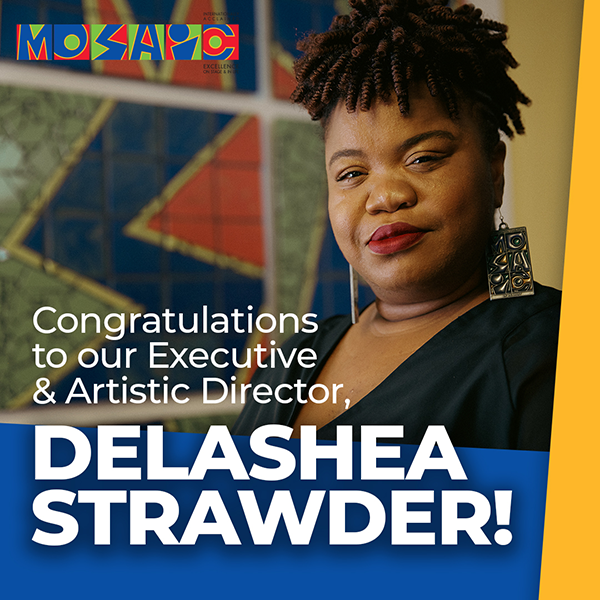 Our very own DeLashea Strawder has been nominated as a Crain’s Detroit 40 UNDER 40. Congratulations on a successful 2022 program year, job well done!
Our very own DeLashea Strawder has been nominated as a Crain’s Detroit 40 UNDER 40. Congratulations on a successful 2022 program year, job well done!
- Engaged over 650 youth and young adults in transformative arts & leadership experiences in over 35 locations across 20 metro-Detroit communities
- Increased arts access through the launch of pilot transportation program funded by The Lewis Prize for Music and the Dresner Foundation
- Collaborated on global Transatlantic Tapestry album featuring Mosaic and Coventry Youth Exchange vocalists and musicians
- 100% matriculation to college for Class of 2022 Mosaic graduates
- 78% college persistence rate for Class of 2019 thru 2021 Mosaic graduates
Mosaic is thrilled to announce that we have been awarded the Gucci North America Changemakers Impact Fund! As a non-profit striving for social change through our diverse collection of performing arts programs, Mosaic will receive a $50,000 grant to create new programs and scale existing initiatives.
We are beyond grateful to be one of only 12 programs to receive this prestigious honor from a pool of over 200 applicants across the country. It’s a true honor to be recognized as a leading organization that uses its inclusive art to fight for personal and systemic change.
Gucci’s generous grant will allow Mosaic’s young artists to flourish in an environment that can fully realize their dreams. This unique opportunity allows our youth to engage in volunteer activities with Gucci employees, participate in town hall conversations with company leadership, and have a voice with the Gucci’s North America Brand and Cultural Engagement team. As a new member in the Changemakers Community, we will have the resources to truly empower the Detroit-area youth both on stage and in life.
To read more about this honor click HERE.
Check out this video from My TV 20 Detroit of our very own DeLashea talking about our latest show, Mwindo! Head to our events page for more information on tickets.
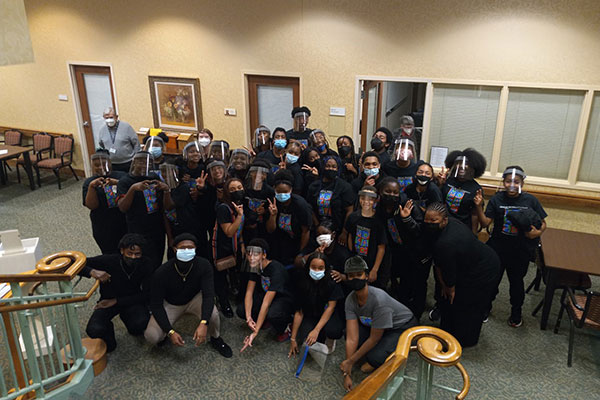 One of the easiest ways to honor Black people and our culture is to recognize, partake in, buy, support, and appreciate their art. In a country that has historically taken from and exploited Black art without recognition, the burden often lies on Black people to create and support our own thing.
One of the easiest ways to honor Black people and our culture is to recognize, partake in, buy, support, and appreciate their art. In a country that has historically taken from and exploited Black art without recognition, the burden often lies on Black people to create and support our own thing.
As we progress as a country, there seems to be this idea that representation politics don’t matter anymore–ie that we should stop celebrating Black people in higher positions/in the media, and just start expecting it. While I think this is an important viewpoint to have, especially in a time where sometimes pro-Blackness stops at representation without going further to actually create any change–mosaic’s youth have been teaching me that representation still matters to many young people.
Carsyn is one of the youngest members in Mosaic’s Acting company–12 years old– and she says that Mosaic is her second home. Because she sees herself represented in leadership, peers, other performers and musicians that work with the company, etc., she feels like it’s easier to be understood and listened to.
I got to chat with Carsyn Sunday, and she shared with me that seeing all-Black casts–or even majority-Black casts–telling Black stories is still powerful to her, especially as someone aspiring to be in their position one day.
“I honestly think it’s really beautiful that our Community can come together in the form of art and theater and choir, sharing their different stories and showing what it’s like to be who we are,” Carsyn shared with me. She says that it’s still more nuanced than just appreciating representation, though. Instead, Carsyn recognizes the power in telling Black stories to share the Black experience– “how we’re feeling, what we’ve been through, and our history” –and not just telling them because they’re fun shows to watch.
It’s important to honor Black art for what it is, which is oftentimes much deeper than what lies at the eye. Certain Black stories are to retain history and folklore, others to offer moments of healing and love, and sometimes Black art is created just to let other Black folk know they aren’t alone in their experience.
Carsyn’s focus on the power of Black people coming together and building community through art is much more powerful when we push past representation (which is also such an important concept to recognize) and see that we are also building each other up through the process.
Imani Harris is a 2018 alumna of the Mosaic Singers. She is currently finishing her Journalism and African American studies degrees at Northwestern University. Imani is passionate about using her voice and knowledge to share Black stories, and especially to support and illuminate all the beauty that exists in the Black community.
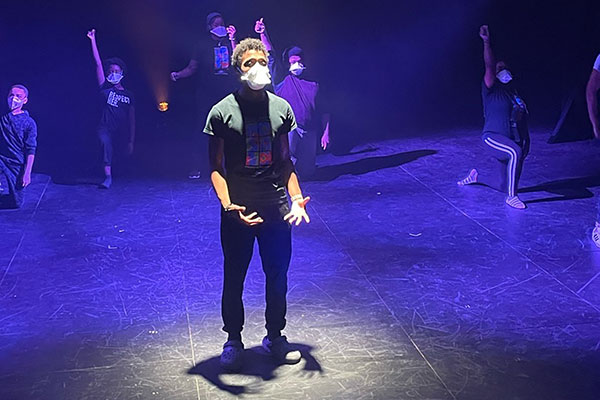 I’ve been thinking a lot about how we celebrate Black history month this year.
I’ve been thinking a lot about how we celebrate Black history month this year.
Whenever I ask young people, or anyone really, how they celebrate, they may talk about what they learned in school, what they’ve been watching on tv, or even maybe the ways that they engage with other Black people this month.
But one thing I don’t often hear is how they may be celebrating themselves and their own Blackness in February. Rarely does anyone speak to the ways that they are pouring into themselves, loving on themselves, learning about themselves, when it comes to a month supposedly dedicated to us. What does it mean to feel like celebrating Blackness doesn’t intrinsically mean celebrating yourself?
Then, I met Makayla, a student at Detroit Waldorf who seems to really be trying to personalize Black history month for herself this year. Instead of thinking about the ways that she’s traditionally learned Black history, Makayla is actively working to think about ways that she can daily acknowledge and strengthen her own connection with her Blackness, in ways like connecting to music through lyric analysis, watching speeches without an academic obligation, and more.
When I asked her how she liked to celebrate, Makayla spent a long time thinking, and even more time explaining that she didn’t really know what she should be doing to celebrate–or even if there was a should.
And that really got my mind spinning. How have we historically taught Black youth to celebrate this month in a way that means something for longer than this month? How can we use this month as a conversation-starter, and NOT the entire conversation, about loving your own Blackness and learning to see your identity as something that is worth exploring and celebrating?
I decided that this week I would work on a list of ways that I worked through my Blackness in high school, hoping that even one idea inspires another Black person to do the work this month on themselves. I also hope that this inspires those responsible for teaching us to think of different ways to make Black history personal to us–almost every student can tell me who Dr.Martin Luther King was, but I wonder if we could take that further and ask students how we see his values and dreams in our own lives.
Some Ways I Celebrate/Explore my Blackness
- Reading Black works/enjoying Black art
- Toni Morrison, Zora Neal Hurston, Ta-Nehisi Coates, and bell hooks are just a few authors that I like to prioritize. I think it’s important to get a good mix of historical context that we can use to make sense of our experiences today. It might help you understand why you feel certain ways about something you see everyday, or even just help you see the world and yourself in it differently.
- Makayla talked about how leaders in Mosaic didn’t just assign them Black songs to sing–they made them go through the lyrics line-by-line to think about what they meant. It’s easy to read an entire book, poem, song, etc. and never sit and think through what commentary the author, singer, etc. was trying to make. Try to think about these pieces in relation to yourself this month, and what ways you can relate them to your experience and personal growth, instead of just existing as something we read because the author is Black and amazing (which they (ALWAYS) are.
- Creating with other Black people
- Makayla and I agreed that there is nothing more empowering than singing a song written for and by Black people, WITH other Black people. She told me about a song that the singers created using similes that filled in the phrase: “Black is like____,” or “Black is ____.” She says that this was one of the moments that stood out to her, especially when it was time to perform the song. It’s important to use Black history month as a moment to build community with people who look like you, and doing that through art is SUCH an unforgettable experience.
- Try to learn about someone/something you didn’t before
- One message I’m constantly getting from young artists in Mosaic is that they learn about the same people every February in schools, at home, etc. I want us to start envisioning what it might look like for Black people to use this month as an opportunity to completely learn/unlearn something about Blackness, and then make a commitment to put this into action. Is there a concept you’ve never got to dig into? A book you’ve always heard about but never read? A skill you’ve always wanted to try but couldn’t? A person who’s name you heard once but forgot? Use this month to start looking into aspects of Blackness you may not have considered before, and I promise that you will grow in your own self-love and celebration, too.
My interview with Makayla really has me thinking about how we are teaching our young folks to think about, and participate in Black history month. This month wasn’t created to continuously prove that Black people have historically been great–it’s to acknowledge all that we have accomplished and done in order to welcome in and prepare for more!
I’m no expert in Black history, but I am fairly confident in the ways that I have learned to understand, celebrate, study and exude my Blackness.
Imani Harris is a 2018 alumna of the Mosaic Singers. She is currently finishing her Journalism and African American studies degrees at Northwestern University. Imani is passionate about using her voice and knowledge to share Black stories, and especially to support and illuminate all the beauty that exists in the Black community.
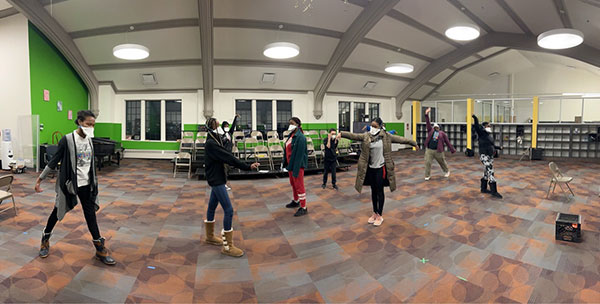 It’s Black history month again, and Mosaic’s young artists are seeing things differently than most.
It’s Black history month again, and Mosaic’s young artists are seeing things differently than most.
Nadia, a student at Southfield Christian, told me a little about how she’s been thinking about Black history month. Instead of something we focus on only one month a year, or only tell certain perspectives of, she thinks it’s important to recognize that Black history is everyone’s history. It’s something we should be actively learning every day.
“In history class, the only time I hear about Black people it’s either slavery or Martin Luther “ King, and though those are very prominent times of Black history, it’s not the whole story,” she told me during our conversation. She brought up Black people’s role in the jazz era as one example, focusing on the fact that “when we only focus on those two points you get a really warped narrative that we’re only victims.”
Instead of focusing on only the past, the young artists at mosaic are excited to leverage Black History month to challenge all of us to recognize that Black history is being made every day. That we are all a part of Black history every day that we wake up. It isn’t confined to one chapter in a history book, or one month in the year, and it definitely isn’t stuck in one moment in time.
Nadia says that representation is just one way that we can continue honoring those who came before us, even when it isn’t Black History Month.
“I feel as though using art to encourage those who may be coming from other backgrounds who look like me that they matter and have the power to succeed and rise above expectations is important,” she told me.
It’s important for Nadia to use the resources that she does have, and to make sure that she represents “the people who look like her” in every space that she’s in. That’s just one of the ways that she finds a way to use her gift.
“Having the opportunity to do that {encourage others] with my voice is impactful, mainly because not everyone has access to the resources that I do.”
If I learned anything from Nadia, it’s that Black history month is way more nuanced than we used to think about it. And that’s okay–relieving even–because it means that it still matters. And that students are still demanding to show up and be seen and heard when it comes to their Blackness.
Imani Harris is a 2018 alumna of the Mosaic Singers. She is currently finishing her Journalism and African American studies degrees at Northwestern University. Imani is passionate about using her voice and knowledge to share Black stories, and especially to support and illuminate all the beauty that exists in the Black community.
Mosaic Youth Theatre of Detroit is humbly grateful to receive a transformational donation from MacKenzie Scott and Dan Jewett. This gift will help Mosaic nurture and equip young artists to be leaders and life-long learners for years to come.
“We are incredibly honored and humbled to receive such a gracious gift from MacKenzie Scott and Dan Jewett. To say this was a surprise would be the understatement of the year,” says DeLashea Strawder, Executive and Artistic Director. “This donation will help us pursue our strategic vision with greater fortitude in order to serve our community and develop young leaders through performing arts programming.”
“The work of Mosaic does not change because of this gift. We’ve been given a unique opportunity to be stewards and make an even bigger impact with our community because of it,” says Strawder.
This donation does not eliminate the need for support moving forward. In many ways, this gift helps catapult the pursuit of Mosaic’s vision to engage our community in even more profound ways through its strategic plan.
The pillars of Mosaic’s strategic vision include:
- Expanding the Mosaic Family
For nearly 30 years, Mosaic Youth Theatre of Detroit has been able to serve its community at a local level and represent our community at a global level, with performances across the United States and various countries. Youth participants from 3rd through 12th grade learn life lessons through training in the performing arts. Some alumni decide to pursue careers in performing arts on Broadway or in Hollywood, while some take the lessons learned at Mosaic and apply them to business or other career paths. This gift will allow us to expand our program opportunities and increase the number of youth served. - Increasing Organizational Capacity
Mosaic intends to use a portion of the donated funds to identify opportunities where greater capacity can help the organization serve its community and mission.
Mosaic values the opportunity to serve its community. Throughout the pandemic, Mosaic has been able to serve its community through virtual-based programming and performances. As the world opens again to public events, we are excited to return to the stage and conduct performances that delight, inspire, and cause our audience to think in new ways.
In keeping with the intent of the donor, Mosaic is choosing not to disclose the amount of this donation. For more information about Mosaic and its programming, please visit mosaicdetroit.org.
The Why Change? Podcast is coming to you live from the BOOST Conference! Jeff M. Poulin chats with DeLashea Strawder – the Executive and Artistic Director of Mosaic Youth Theatre and recent Recipient of the 2021 Lewis Prize For Music – about innovative arts-based youth work in the BOOST podcast lounge. He also chats with Dalouge Smith, CEO of The Lewis Prize for Music about new models of philanthropy in music for social change programs.



